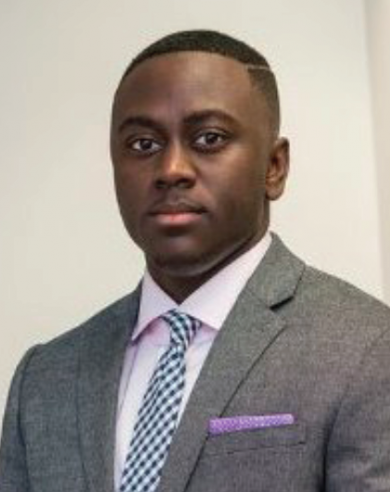Leader Spotlight: Mac McEachin
Veterans for American Ideals is recognizing veteran leaders who are continuing their service by building unity and standing up for American values. Through a series of interviews, we’re asking VFAI leaders to share more about how their service shaped them and what responsibility they feel veterans have to speak up on issues that relate to our national ideals.
Today’s interview is with Mac McEachin, a U.S. Army Reserve veteran who is currently a National Security Policy Associate with the International Refugee Assistance Project, working on issues including refugee protection and the Special Immigrant Visa (SIV) program.
Tell me about your military service. When and where did you serve? Why did you join the military?
I joined the Army Reserve in 2011 as an enlisted Civil Affairs member. The Army was the first job I ever wanted, starting when my parents got me a book about the Virginia Military Institute when I was about 6. Since then, it’s all that I’ve wanted to do. I’m currently applying to Officer Candidate School and hoping to go on active duty next year. It’s what my passion has always been. I love the sense of camaraderie and sense mission that comes with it, even when things are tough.
How did your service shape the person you are today?
The military definitely impacted my personality in a lot of ways. I now have little patience for politics for politics’ sake. In the Army, leaders eat last, they sleep last. Everything that you do as a leader in the military is supposed to be geared toward your junior guys and ensuring they are ready to go for whatever happens next. I’ve adopted that in my work and professional life. It informs my politics too – speaking up for those who may not be able to or know how to advocate for themselves.
As a veteran, what sort of responsibility do you feel to speak up on issues that relate to American ideals?
People, especially elected officials, use veterans as an easy talking point, something that will get people’s approval. People forget that veterans are a diverse group. The military is one of the most diverse institutions in the United States, and it has been at the forefront of a lot of social movements. As a veteran, I believe we have a responsibility to speak up and demonstrate that we’re living, breathing, thinking voters and not just talking points.
Tell me about one issue related to those ideals that is of particular importance or concern to you right now. What are you doing about it?
Politics has become such a polarized, crazily divisive thing. People see it as a game show now. As long as they see the other side losing, they’re happy. They tell themselves that the whole game is rigged anyway, so why should they care? That mentality has corrupted our discourse and allowed people in power to ignore the very real needs of folks who don’t have the ability or time to raise a stink in Washington.
I have tried to be more deliberate in how I approach certain issues in conversation, especially since the recent election. On the left, which is where many of my politics fall, we tend to have a strong sense of morality; this is right because it’s right, and you can either agree with me on it or I can’t even talk to you about it.
But that doesn’t work most of the time, and when you think about it, it shouldn’t. We have to meet people where they are, and talk about our issues in a way that is applicable to people’s everyday lives. I’ve become a lot more aware of how I discuss issues seen as partisan, and I try to assume the best in the people I talk to. I try to meet people where they are. I start with the framework that we are all Americans and go from there.
What would you say to other veterans about the role that they can play in these issues as citizens?
You can and should be involved. Most veterans are used to the restrictions on political activity that exist when you’re in the service, and may think that politicians have better things to do than to listen to you. That’s not the case. Don’t be afraid to call members of Congress, visit their offices, or work on political campaigns. Beyond that, become educated on the issues and don’t allow yourself to be used as a talking point if you don’t want to be. Know what you feel about an issue based on your own experience and education and don’t be afraid to speak up and educate others about it.


